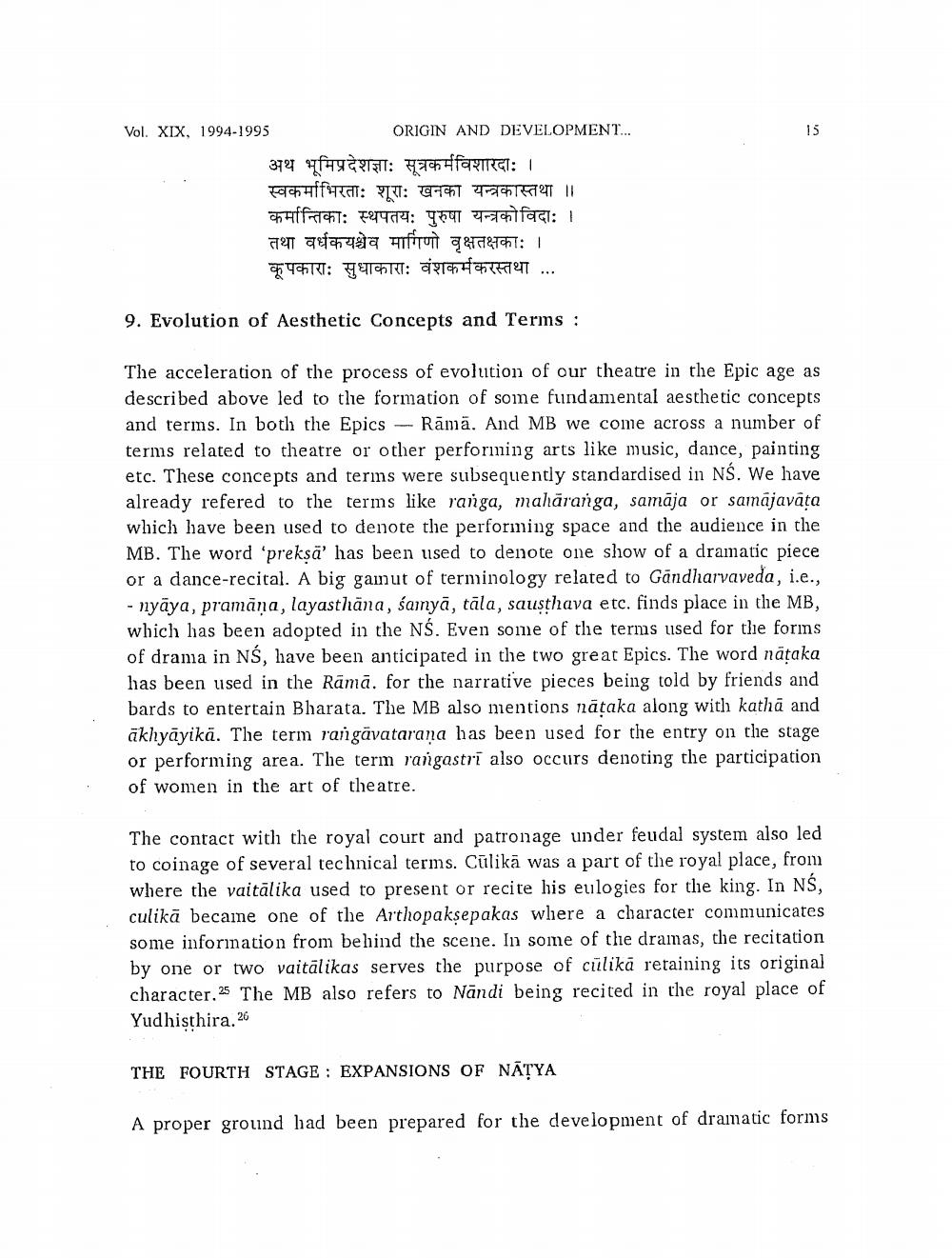________________
Vol. XIX, 1994-1995
ORIGIN AND DEVELOPMENT...
अथ भूमिप्रदेशज्ञाः सूत्रकर्मविशारदाः । स्वकर्माभिरताः शूराः खनका यन्त्रकास्तथा ॥ कर्मान्तिकाः स्थपतयः पुरुषा यन्त्रकोविदाः । तथा वर्धकयश्चेव मार्गिणो वृक्षतक्षकाः । कूपकाराः सुधाकाराः वंशकर्मकरस्तथा
...
15
9. Evolution of Aesthetic Concepts and Terms:
The acceleration of the process of evolution of our theatre in the Epic age as described above led to the formation of some fundamental aesthetic concepts and terms. In both the Epics - Rama. And MB we come across a number of terms related to theatre or other performing arts like music, dance, painting etc. These concepts and terms were subsequently standardised in NS. We have already refered to the terms like ranga, mahāranga, samāja or samājavāța which have been used to denote the performing space and the audience in the MB. The word 'prekṣa' has been used to denote one show of a dramatic piece or a dance-recital. A big gamut of terminology related to Gandharvaveda, i.e., -nyaya, pramana, layasthana, samya, tāla, sausthava etc. finds place in the MB, which has been adopted in the NŚ. Even some of the terms used for the forms of drama in NŚ, have been anticipated in the two great Epics. The word nataka has been used in the Rämä. for the narrative pieces being told by friends and bards to entertain Bharata. The MB also mentions nataka along with katha and akhyāyika. The term rangavatarana has been used for the entry on the stage or performing area. The term rangastri also occurs denoting the participation of women in the art of theatre.
The contact with the royal court and patronage under feudal system also led to coinage of several technical terms. Cülikä was a part of the royal place, from where the vaitālika used to present or recite his eulogies for the king. In NŚ, culika became one of the Arthopakşepakas where a character communicates some information from behind the scene. In some of the dramas, the recitation by one or two vaitālikas serves the purpose of cülika retaining its original character. The MB also refers to Nandi being recited in the royal place of Yudhisthira.20
THE FOURTH STAGE: EXPANSIONS OF NATYA
A proper ground had been prepared for the development of dramatic forms




